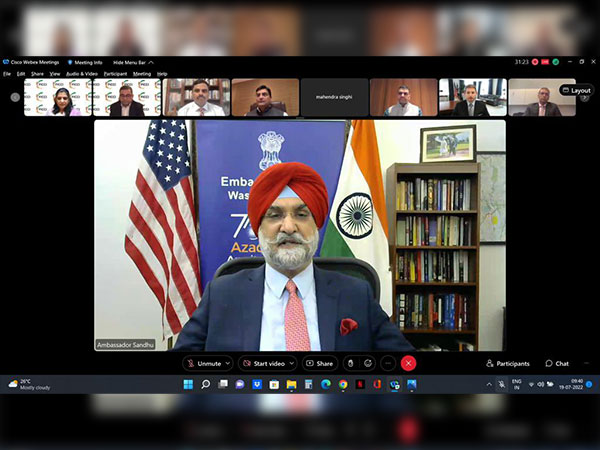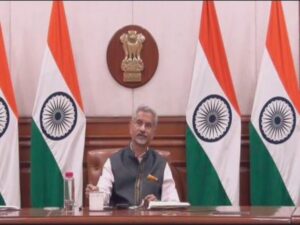
New Delhi [India], July 21 (ANI): While emphasizing that the global market capitalization in the green economy is only 7 per cent with value standing at USD 7 trillion and though growing at a fast pace, green financing could become a bright and robust stand in the growing US-India economic relations during the next 25 years, said Taranjit Singh Sandhu, Ambassador of India to the US. “As India celebrates its 75 years of Independence, green finance could become bright and robust stand in the growing US-India economic relations during the next 25 years,” Sandhu said at an event organized by industry body FICCI titled ‘India-US Economic Partnership: From Here to Where in Next 25 years’.
Green financing is basically the funds from banking, micro-credit, insurance, and investments from the government, public, private and not-for-profit sectors towards sustainable development projects.
In clean technology, India and the US together have the world’s best brains and labs to create cutting-edge technologies in green Infrastructure, he said. “India is one of the few countries that is on track to achieve the targets under the Paris agreement,” FICCI quoted the Ambassador as saying.
India ranks fourth in the world in total installed renewable energy capacity. “India’s fossil fuel has reached 40 per cent of the energy meets and we have achieved these by our own limited resources,” he noted. He further said the India-US partnership in the fight against climate change has not only been bilateral, but it has been global too. Climate change is one of the most important challenges that India faces today which threatens the sustenance and survival of future generations.
“India and the United States are natural partners and demonstrated time and again that they can work together whenever humanity faces crisis. Both countries have strong convergence and our leadership have the intent and will to fight the global fight against climate change,” he said.
At the COP26 summit at Glasgow in late 2021, Indian Prime Minister Narendra Modi committed to an ambitious five-part “Panchamrit” pledge, including reaching 500GW of non-fossil electricity capacity, to generate half of all energy requirements from renewables, to reduce emissions by 1 billion tons by 2030. India also aims to reduce the emissions intensity of GDP by 45 per cent.
Finally, India commits to net-zero emissions by 2070. (ANI)
















